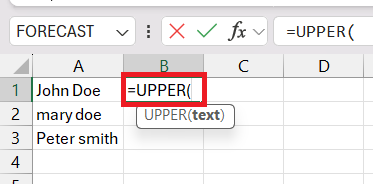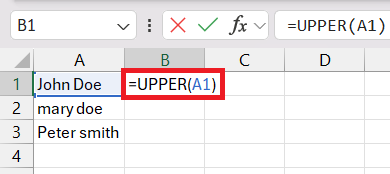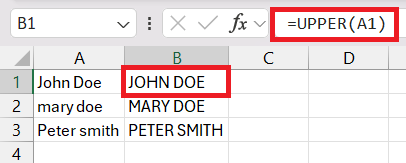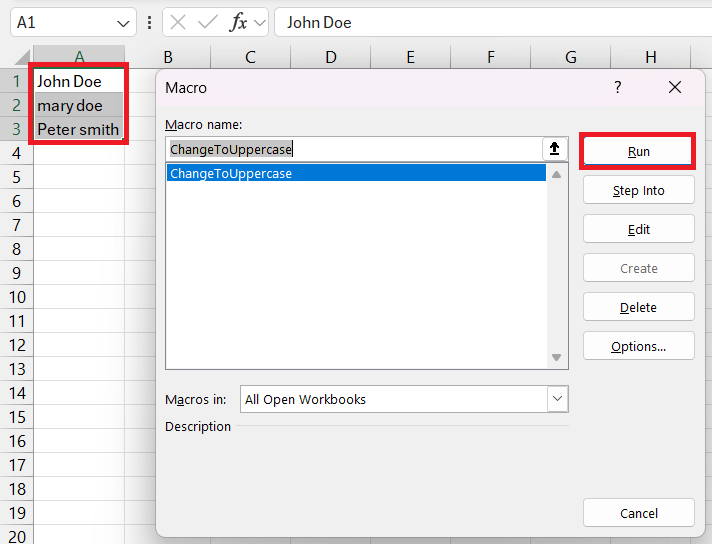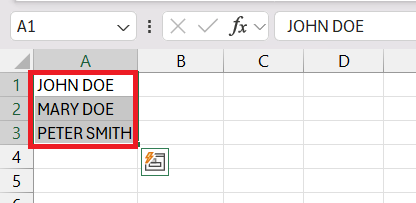Microsoft Excel’s capabilities in text manipulation, like change font to all caps, are vital for efficient data presentation and formatting. This guide explores the power of uppercase shortcuts in Excel, demonstrating how they can simplify data standardization across spreadsheets. From basic functions and shortcuts to advanced macros, understanding how to efficiently convert text to uppercase is essential for any Excel user.
Key Takeaways
- The UPPER function in Excel provides a straightforward method to convert text into uppercase, enhancing uniformity and emphasis in your data.
- Flash Fill offers an intuitive, formula-free option for case conversion, ideal for one-time adjustments but lacks dynamic updating with data changes.
- Visual Basic for Applications (VBA) macros enable automation of uppercase conversion, saving significant time and effort for frequent users.
- Common pitfalls in using uppercase shortcuts include potential data loss, exceptions oversight, and misapplication, which can be mitigated with careful preparation and application.
- Customizing the Quick Access Toolbar (QAT) with uppercase conversion tools or macros can dramatically improve efficiency, reducing the time spent navigating Excel’s interface.
Table of Contents
Introduction to Uppercase Shortcuts in Excel
The Power of Text Manipulation in Spreadsheets
In the realm of spreadsheets, text manipulation stands as a core skill that empowers you to streamline data presentation and formatting. Excel, the powerhouse among spreadsheet tools, offers diverse ways to tweak text, including changing cases to fit your needs.
Quick Navigation to Excel Case Changing
Navigating through Excel’s options for text case changes doesn’t have to be intimidating. With a mix of shortcuts, functions, and add-ins, transforming text cases can be made almost effortless, particularly when capitalizing entire sections of your data swiftly and accurately.
Understanding the Basics of Text Case in Excel
Different Text Case Options Available
Excel delivers a suite of text case options to suit various data presentation standards. You can choose from Sentence case, lowercase, UPPERCASE, Capitalize Each Word, and even tOGGLE cASE. Each of these serves distinct purposes, from highlighting titles to conforming to data entry norms, ensuring that your spreadsheets look professional and are easy to read.
Why Changing Text Case Can Be Essential
Changing text cases in Excel can be essential for several reasons. Correct case usage not only helps in neat data presentation but also in yielding accurate search results, especially since some functions in Excel are case-sensitive. For example, if you’re working with a list of names where capitalization is crucial, proper text case ensures consistency and clarity. Additionally, importing text from other programs might disrupt the original letter case, so modifying it to match your spreadsheet’s format can make your data cleaner and more organized.
Conventional Methods to Convert Font to all Caps
Method 1 – UPPERCASE Function
The UPPER function in Excel is the clean-cut solution to convert any text to uppercase letters. Its simple syntax, =UPPER(text), allows you to swiftly transform your data. Just place the function in a cell and reference the text or cell address you wish to modify. Within seconds, you’ll see the text morph into all caps, bringing uniformity and emphasis where needed.
STEP 1: Place the UPPER function in the desired cell.
STEP 2: Specify which text to convert by referencing a cell or entering text directly.
STEP 3: Press Enter and watch the transformation unfold.
Remember, the UPPER function is non-discriminatory – every letter fed into it emerges as an uppercase character.
Method 2 – Harnessing Flash Fill for Case Conversion
Harnessing Flash Fill in Excel revolutionizes the way you perform case conversion. Once you exemplify how you want your text to appear in the adjacent cell, Flash Fill intuitively replicates that pattern without the need for formulas. Enable it with ease using the ‘Data’ tab or the ‘Ctrl + E’ shortcut, making your data conforming to uppercase a simple, few-clicks affair. Though it’s perfect for one-time transformations, remember that Flash Fill doesn’t dynamically update if your original data changes.
Method 3 – Creating a VBA Macro for Uppercase Conversion
To automate uppercase conversion, one might consider diving into Excel’s coding layer using Visual Basic for Applications (VBA). Here’s a simple step-by-step guide to creating a macro that does the heavy lifting:
STEP 1: Press Alt + F11 to summon the VBA editor.
STEP 2: Select “Insert” in the menu and pick “Module” to introduce a fresh module.
STEP 3: Copy and paste the VBA code:
Sub ChangeToUppercase() Dim cell As Range For Each cell In Selection cell.Value = UCase(cell.Value) Next cell End Sub
STEP 4: Close the editor, select your cells, and hit Alt + F8, choose your macro, then ‘Run’.
STEP 5: Sit back and witness the on-screen alchemy as your text ascends to uppercase glory.
Leveraging macros saves time and effort, especially when you often encounter the need for case conversion in your tasks.
Practical Tips When Using Uppercase Shortcuts
Common Pitfalls and How to Avoid Them
When using Excel’s uppercase shortcuts or any form of text manipulation, common pitfalls can cause hiccups. To safeguard against these:
- Data Loss: Always keep a raw data backup before applying transformations to avoid irreversible changes.
- Overlooking Exceptions: Be mindful of cells that should remain in specific cases, like acronyms or proper nouns.
- Misapplication: Ensure that macros or Flash Fill are only applied to appropriate data ranges to prevent unwanted changes.
By anticipating these pitfalls, one can navigate text case changes safely, maintaining the integrity and intention of the original data.
FAQs About Excel Uppercase Shortcut
What Is the Quickest Way to Make Text Uppercase in Excel?
The quickest way to make text uppercase in Excel is by using the UPPER function. It instantly converts selected text to uppercase, saving time on manual entry or navigating through menus.
Can I Use Shortcuts to Change Case for Multiple Cells at Once?
Yes, you can use shortcuts to change case for multiple cells at once in Excel. Simply use the Excel UPPER function and employ the drag-fill handle to extend the formula across multiple cells.
How do I make all capital letters in Excel?
To make all letters capital in Excel without using formulas, add an empty column next to your data and type the capitalized version of the first entry. Press ‘Enter,’ and Excel will suggest using Flash Fill (Ctrl + E) to transform the rest of the column into uppercase.
What is the VBA code that can be used to change the font to all caps in Excel?
Sub ChangeToUppercase()
Dim cell As Range
For Each cell In Selection
cell.Value = UCase(cell.Value)
Next cell
End Sub
What is Flash Fill in Excel?
Flash Fill in Excel is a smart data entry feature that automatically fills in data for you based on a pattern it detects in your actions. After you manually enter data in a few cells to establish a pattern, Flash Fill can complete the rest of the column by recognizing and applying the pattern to additional data. It’s particularly useful for formatting, extracting, or transforming data without the need for formulas.
John Michaloudis is a former accountant and finance analyst at General Electric, a Microsoft MVP since 2020, an Amazon #1 bestselling author of 4 Microsoft Excel books and teacher of Microsoft Excel & Office over at his flagship Academy Online Course.
